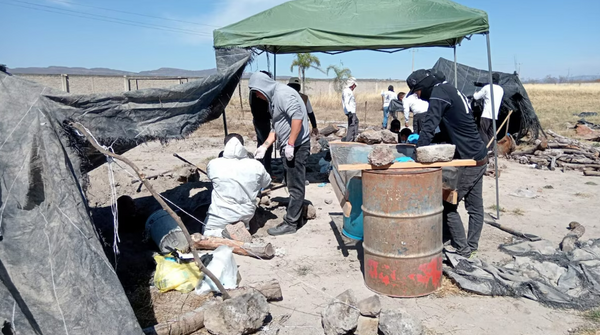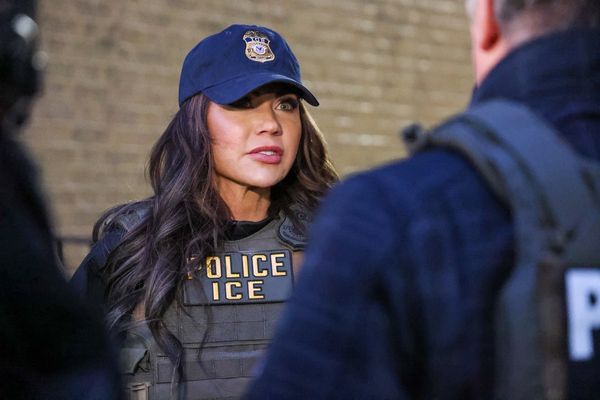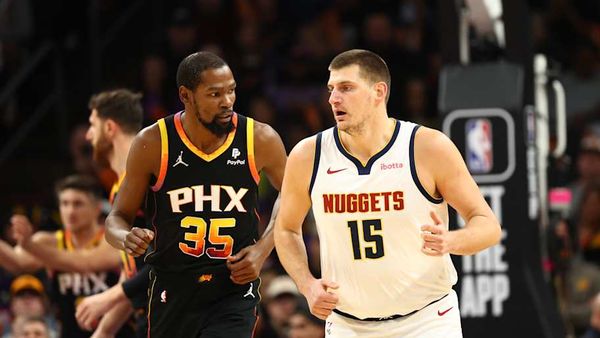Thousands of Ukrainians have volunteered to defend their country and to fight Russia’s invasion, with recruits including IT workers and builders taking part in basic training before setting off for battle.
The volunteer centre in Lviv was packed on Wednesday with new soldiers who had signed up to join territorial defence units. Some were in military uniform, others wore civilian clothes and baseball hats and carried shiny backpacks.
They lined up for the first time in a street on Taras Shevchenko Avenue, named after Ukraine’s national poet. “Raise your hand if you have a car,” their new commander barked. The recruits divided into groups and introduced themselves. Around them snow fell.
“History is happening right now. I don’t want to be on the sidelines,” Vitali, the 35-year-old boss of a Lviv startup said, speaking at an assembly point. “I want to make history. Finally the world should know what is evil and what is good. We have the whole world’s support.”
Vitali, who did not wish to give his last name, added: “The main reason we are going to win is because of people.” What was his message for Vladimir Putin? “I don’t negotiate with terrorists,” he said. “He is going to die soon. His whole regime will fall.”
Vitali said he and his company’s 15 employees had begun weapons training five days before Russia’s attack. He had volunteered the day of the invasion. The recruits were going to learn combat first aid and other skills at an undisclosed location outside the city, he said.
With Kharkiv and Kyiv under brutal bombardment and the Ukrainian army encircled in the city of Mariupol, volunteers from western Ukraine are being brought in as reinforcements. Some fought in 2014 against Russian-armed separatists in the eastern Donbas region, when Putin annexed Crimea.
Others were still at school at the time. “There are 17- and 18-year-olds today ready to lay down their lives for Ukraine. They say: ‘We will die for Lviv’,” Bogdan Matsuk, 22, said. “I’m fighting for my home. I was born here … I think all Russians will be killed,” he added.
Matsuk was one of several volunteers with international connections. He spent his childhood in Texas before returning to Lviv aged 14. Were his parents – who are in the US – worried? “No. They are happy for me. They are saying: ‘It’s your decision’”, he replied. He added: “Putin thought Ukraine was weak. He speaks dumb shit”.
Across Ukraine, citizens have aided the war effort in multifarious ways. Grandmothers are cooking borscht and giving it to refugees fleeing west to Poland, creatives are making molotov cocktails in Lviv basements and chill lounges, and affluent businessmen are buying up drones and Kevlar vests.
Alex Riabchyn, a former deputy in Ukraine’s parliament and an adviser to the CEO of the state gas firm Naftogaz, said volunteers were playing a crucial part in the struggle for the nation’s survival. “We have a series of strong horizontal links. We are good at self-organisation,” he explained.
He continued: “Russia has vertical links and strong institutions. Putin says something; Russians obey. In Ukraine, institutions are weak. We are not used to obeying. The state killed people in the Holocaust and the gulags. People here rely on their family and friends.”
Riabchyn said civil society was enjoying an unprecedented moment, with collaborative networks formed on Telegram and WhatsApp. The spirit and “fellowship” of the Maidan – the 2014 uprising against Viktor Yanukovych, Ukraine’s corrupt pro-Russian president – had spread across the country, he said.
“We are a huge amount of ants,” he added, saying Ukrainians were united like never before. “Previously we had differences. There are no divisions,” he said.
The country’s president, Volodymr Zelenskiy, made the same point about unity in a video address on Wednesday. But could Ukraine prevail against a ruthless foe? “We are prepared for a long siege. It’s impossible to surrender. You can decapitate the government or president but you can’t defeat the nation. Russia has miscalculated.”
The volunteers’ commander made a rousing speech mentioning anti-tank missiles and stingers, supplied by the UK, US and other western countries. He referred to the enemy as Moskali – a derogatory Ukrainian term for Russians. “Glory to Ukraine!” he shouted. “To the heroes, glory!” the recruits roared back.
They clambered into cars and set off in convoy to a secret destination. Vitali’s Nissan SUV had a wooden pole sticking out of the front window adorned with a blue and yellow Ukrainian flag.
One person left behind at volunteer HQ was Alex, a 24-year-old builder who did not wish to give his last name. Some soldiers had to stay in the city, Ukraine’s sixth biggest, he said, in case the Russians tried to do a sneak attack. Alex said he had spent six years working and living in Wrocław in western Poland. He came back as soon as the Russian onslaught began.
“We are a strong country. And we have outside help. Putin has united us,” he said, adding that expatriate Ukrainians were returning in droves to defend their home. His senior officer beckoned him away. Could the officer talk? “Sorry, no time,” he replied.







